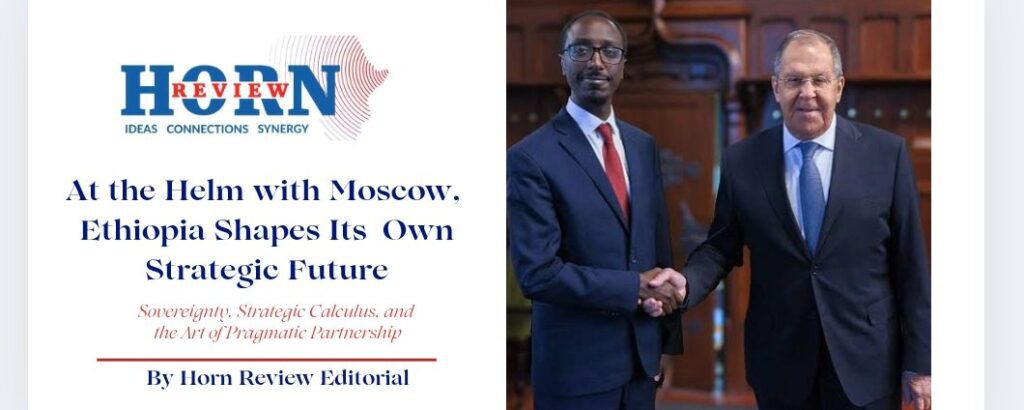Ethiopia’s Diplomatic Engagement: A New Chapter in Sovereign Strategy
Introduction to Ethiopia’s Strategic Diplomacy
Ethiopia’s recent diplomatic outreach towards the Russian Federation, marked by the visit of Foreign Minister Gedion Timothewos, exemplifies a refined practice of sovereign statecraft. This engagement goes beyond mere formalities; it reflects Ethiopia’s calculated approach in navigating its international relations, balancing historical connections with contemporary strategic goals.
The Significance of High-Impact Collaborations
During his visit, Timothewos underscored key areas of discussion, including a Nuclear Power Plant project, various sectors of cooperation, and the enduring relationship between Ethiopia and Russia. This careful articulation showcases Ethiopia’s dual-pronged strategy to foster tangible collaborations while preserving its sovereign autonomy. The emphasis on operational cooperation serves not only to enhance diplomatic relations but also to project an image of disciplined agency on both regional and global stages.
Military Cooperation and Sovereignty
A pivotal moment in the talks came when Russian Foreign Minister Sergey Lavrov affirmed that Moscow is ready to respect Ethiopia’s priorities in military cooperation. This statement, while seemingly routine, carries significant weight. By prioritizing Ethiopian prerogatives, Russia effectively allows Addis Ababa to assert its agenda-setting authority in military-technical discussions. This model ensures that any cooperative efforts in defense modernization are driven by Ethiopian needs rather than external pressures, thereby strengthening Ethiopia’s capacity for defense and technical advancement.
Energy Sovereignty and Development Goals
The discussions also extended to vital sectors such as energy, trade, and scientific cooperation. Russia’s willingness to assist in upgrading the Soviet-era power infrastructure aligns seamlessly with Ethiopia’s ambition for energy sovereignty. Furthermore, the emphasis on the Nuclear Power Plant project links directly to the country’s long-term developmental trajectory, highlighting the connection between industrialization, technology, and multilateral engagement. The proposal for Ethiopia to potentially host the 2026 Russia–Africa Summit further affirms its diplomatic significance within the continent.
Balancing Partnerships and Strategic Interests
This diplomatic engagement serves multiple analytical purposes. First, it illustrates Ethiopia’s deftness in balancing sovereign partnerships with strategic alignments. By engaging major powers like Russia, Ethiopia retains the flexibility to navigate sensitive issues, including security challenges within the Horn of Africa. Second, it illustrates how emerging powers can operationalize their agency within asymmetrical relationships, maximizing developmental and security benefits without compromising autonomy. Lastly, it signals that Ethiopia’s foreign policy is rational and credibility-driven, opting for strategic prudence over transactional dependency.
Conclusion: A Model of Measured Diplomacy
Ethiopia’s visit to Moscow represents a paradigmatic example of sophisticated diplomacy. By blending a historical perspective with forward-looking plans in energy and industrial growth, Ethiopia asserts itself as an influential negotiating power with global entities. This careful focus on national interests, especially in military-technical cooperation, projects an image of a country capable of defining its engagement with global powers on its own terms—a true model of principled diplomacy in a multipolar and often volatile landscape.
For more insights into Ethiopia’s strategic partnerships, visit Trust for Africa or explore discussions on international diplomacy at the Council on Foreign Relations.
